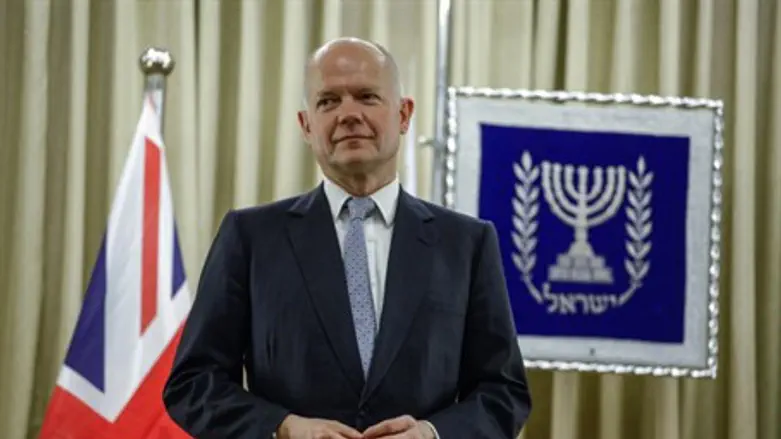
Britain’s Foreign Secretary, William Hague, said on Sunday that one has to be realistic about Syria’s agreeing to allow United Nations inspectors to investigate allegations of a chemical weapon attack near Damascus last week.
Hague told reporters that evidence indicating that a chemical attack took place could have already been destroyed ahead of a visit to the site by the inspectors.
"We have to be realistic now about what the UN team can achieve," he said.
"The fact is that much of the evidence could have been destroyed by that artillery bombardment. Other evidence could have degraded over the last few days and other evidence could have been tampered with," said Hague.
He noted that all evidence pointed towards the use of chemical weapons by the Syrian government, adding that such attacks demanded a strong international response.
"We cannot in the 21st century allow the idea that chemical weapons can be used with impunity," Hague said. "We believe it's very important that there is a strong response and that dictators ... know that the use of chemical weapons is to cross a line and that the world will respond when that line is crossed."
Earlier Sunday, the Syrian government agreed to allow UN inspectors to investigate allegations of the chemical weapon attack near Damascus.
The UN team is to begin work on Monday. Activists say Syrian forces killed more than 300 people in several suburbs east and west of the capital on Wednesday, and numerous amateur videos have provided evidence that a chemical gas attack did indeed take place.
On Friday it was reported that a preliminary assessment made by U.S. and allied intelligence agencies has concluded that chemical weapons were indeed used by Syrian forces in the attack near Damascus.
It is believed the attack was carried out with high-level approval from the government of President Bashar Al-Assad.
Pressure has been piling up on the West, particularly on U.S. President Barack Obama, to respond to the attack. Obama said last year that the use of chemical weapons in Syria would cross a "red line" and force a tough U.S. response, but so far has failed to deliver such a response other than deciding to directly arm selected Syrian rebel groups without publicly specifying the extent of the support.
On Friday, the American president called the alleged use of chemical weapons against civilians "a big event of grave concern," but was very cautious in regards to the possibility of using force in Syria, noting that there is still a war going on in Afghanistan.
